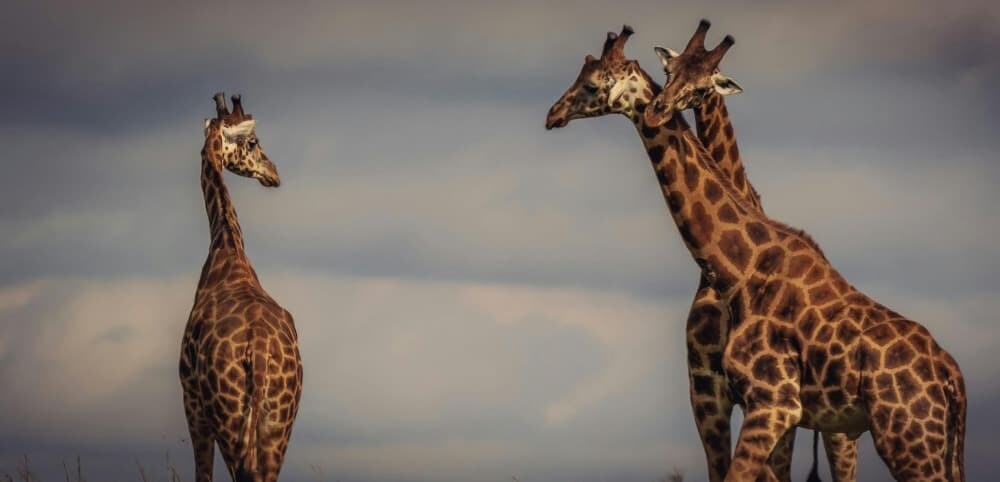Did you know that Uganda is known as the ‘Pearl of Africa’?
Uganda holds a special place for Cooperating Volunteers, as it’s where everything began. During your volunteer experience, you can participate in various programs such as child care, sports, community education, construction, environment and agriculture, teaching, mental health, or medical services. In your free time, you’ll have the chance to explore this wonderful country. Here are some must-see places if you choose Uganda as the destination for your adventure.
What should you not miss?

RWENZORI MOUNTAINS NATIONAL PARK
This national park, also known as the Mountains of the Moon, is located on the border between Uganda and the Democratic Republic of the Congo and was declared a UNESCO World Heritage Site in 1994.
Famous for its impressive alpine landscapes, glaciers, waterfalls, lakes, and rich biodiversity, it’s ideal for nature and adventure lovers.
The Rwenzori Mountains reach heights of over 5,000 meters, with Mount Stanley (also known as Ngaliema) being the highest at 5,109 meters, making it the third highest mountain in Africa, after Kilimanjaro and Mount Kenya. The highest peak of Mount Stanley is Margherita Peak, but it includes other famous peaks like Alexandra Peak and Albert Peak.
Due to the height of these mountains, it’s quite likely to find glaciers, although they are shrinking due to climate change. The glaciers and snow are an attraction for climbers, with various routes requiring great skill. There are treks lasting between 7 and 10 days.
The park is home to a wide variety of plants and animals. Among the flora, giant plants like lobelias and senecios stand out. In terms of fauna, you can find forest elephants, chimpanzees, leopards, and various species of endemic birds.
The park is accessible from Kasese, a nearby town in Uganda, and routes can vary depending on the level of difficulty you’re looking for.
MURCHISON FALLS NATIONAL PARK
This national park is located in northwestern Uganda and is the largest national park in the country. It’s one of its most iconic tourist destinations, offering a unique mix of stunning landscapes, diverse wildlife, and the majestic waterfall that gives the park its name. Established in 1952, it has been visited by many notable personalities, including Winston Churchill and Ernest Hemingway. Hemingway survived a plane crash near the park in 1954, an event that drew global attention.
The park covers an area of about 3,893 square kilometers and is divided by the Victoria Nile River. The spectacular Murchison Falls is where the Nile narrows and plunges 43 meters through a gorge just 7 meters wide, creating a breathtaking view and a powerful force of water.
The park is home to a rich diversity of wildlife. Notable animals include elephants, lions, leopards, buffaloes, Rothschild’s giraffes, hippos, Nile crocodiles, and various species of antelopes. Additionally, it’s a paradise for bird watchers, with over 450 species recorded.
There are various activities to enjoy, with the most popular being:
A vehicle safari through the park’s savannas to observe the majestic animals in their natural habitat.
Boat cruises on the Nile offering spectacular views of the falls from below.
Hiking to the top of the falls to enjoy the impressive views and the power of the water. Fishing for tiger fish or Nile perch.
The park is managed by the Uganda Wildlife Authority, which works to protect its biodiversity and promote sustainable tourism. Conservation efforts include anti-poaching measures and natural resource management.

BWINDI IMPENETRABLE NATIONAL PARK
Located in southwestern Uganda, it is one of the world’s most famous ecotourism destinations due to its population of mountain gorillas. This park offers a unique combination of biodiversity, spectacular landscape, and wildlife observation opportunities.
Bwindi spans 331 square kilometers of mountainous forests and is situated in the region of the Albertine Rift Valley. The park is known for its steep terrain and dense forest, earning it the reputation of being “impenetrable.” The climate is tropical with two main rainy seasons, from March to May and from September to November. It’s accessible from Kampala, Uganda’s capital, via an 8-10 hour road trip. You can also fly to nearby airstrips like Kihihi and Kisoro.
It is one of Africa’s richest ecosystems, with a great variety of plant, animal, and bird species. Besides the mountain gorillas, Bwindi is home to elephants, antelopes, chimpanzees, and over 350 bird species, including many endemic species.
Famous for housing approximately half of the world’s mountain gorilla population, there are several gorilla families habituated to human presence, allowing for gorilla trekking, a unique and exciting experience that lets visitors closely observe these majestic primates in their natural habitat.
Visitors can also interact with local communities, including the Batwa, a tribe of hunter-gatherers who were the original inhabitants of the forest.
The park’s management focuses on the conservation of mountain gorillas and their habitat. Tourism revenue supports both conservation efforts and local communities, creating a sustainable ecotourism model.
QUEEN ELIZABETH NATIONAL PARK
Located in southwestern Uganda, this is one of the country’s most popular and diverse national parks. Named in honor of Queen Elizabeth II, the park is known for its stunning landscape, varied wildlife, and ecotourism opportunities.
Covering approximately 1,978 square kilometers, it lies between Lakes George and Edward, connected by the Kazinga Channel. The landscape includes savannas, forests, wetlands, and volcanic craters. The climate is tropical, with a dry season and a rainy season.
Queen Elizabeth is home to a great diversity of fauna. Notable mammals include elephants, lions, leopards, hippos, buffaloes, and various species of antelopes. The park is famous for its “tree-climbing lions” in the Ishasha area. It also boasts a rich birdlife with over 600 species recorded, making it a paradise for bird watchers.
Activities include safaris, boat cruises on the Kazinga Channel, chimpanzee trekking, walks and hikes, and cultural visits to local communities.
The park is accessible by road from Kampala in about 6-7 hours. You can also fly to Mweya or Kasese airstrips via domestic flights.
LAKE VICTORIA
Situated in East Africa, Lake Victoria is the largest tropical lake in the world and the second-largest freshwater lake by area, after Lake Superior in North America. This lake is a crucial geographical feature and a vital resource for the surrounding countries: Uganda, Kenya, and Tanzania.
It has an area of approximately 68,800 square kilometers, with an average depth of about 40 meters and a maximum depth of 84 meters.
It was “discovered” by European explorers in the 19th century. John Hanning Speke was the first European to reach the lake in 1858, naming it after Queen Victoria of England. However, the lake has been known and inhabited by local communities for thousands of years.
It is the primary source of the White Nile, one of the two main tributaries of the Nile River. The Kagera River is its largest tributary.
Lake Victoria hosts rich biodiversity, including a variety of fish, the most famous being the Nile perch. However, the introduction of the Nile perch has had a devastating impact on native fish species. It is crucial for local economies, although overfishing and pollution present significant challenges.
Management of Lake Victoria requires cooperation between Uganda, Kenya, and Tanzania, with several regional programs and agreements, like the Lake Victoria Environmental Management Project, focusing on conservation.
These are just some of the essentials in Uganda, but there are many more recommended spots to explore during your visit.
If you want to know more locations, stay tuned for the second part.




